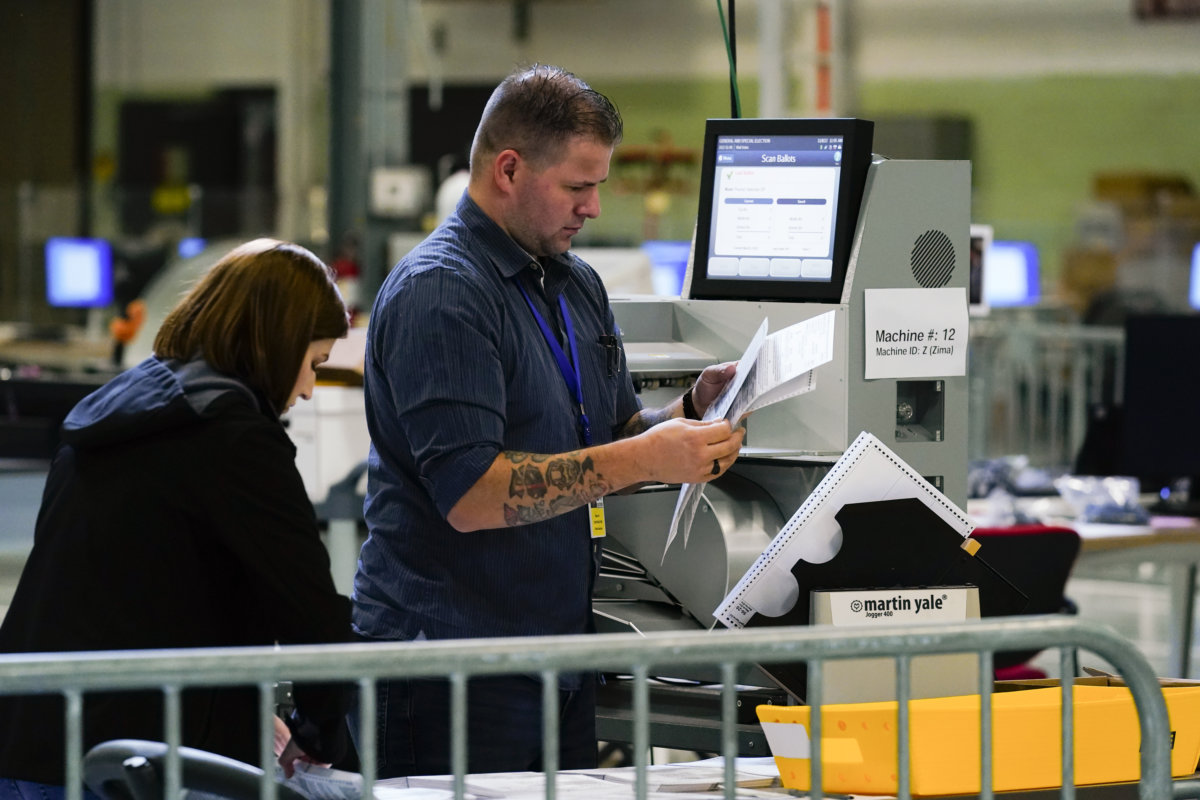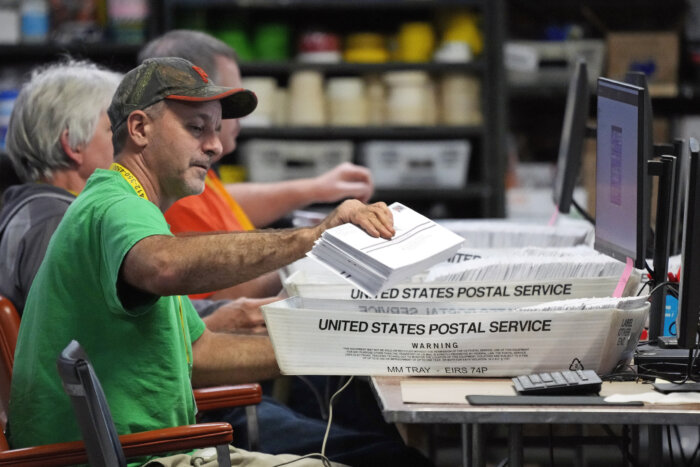By NOMAAN MERCHANT and EMILY WAGSTER PETTUS Associated Press
No instances of digital interference are known to have affected the counting of the midterm vote after a tense Election Day in which officials were closely monitoring domestic and foreign threats.
A few state and local governments appeared to be hit by a relatively rudimentary form of cyberattack that periodically made public websites unreachable. But U.S. and local officials said Wednesday that none breached vote-counting infrastructure.
“We have seen no evidence that any voting system deleted or lost votes, changed votes, or was any way compromised in any race in the country,” Jen Easterly, director of the U.S. Cybersecurity and Infrastructure Agency, said in a statement.
CISA and other federal agencies had warned that safeguarding U.S. elections has become more complex than ever, with the most serious threats from domestic sources. Foreign adversaries such as Russia, China, and Iran have tried to meddle in individual campaigns and amplify false or misleading narratives on social media.
Many members of an increasingly fractious American public have latched onto unproven conspiracies about voter fraud. And there are constant fears that state-sponsored intruders or criminals might try to interfere with voter rolls or steal data for ransom. Also of concern are increasing physical and online threats to election workers.
As Metro went to press, votes were still being counted throughout the country and winners have not been projected in some key races that will decide control of the House and Senate.
“It’s important to remember that this thorough and deliberative process can take days or weeks, depending on state laws; these rigorous procedures are why the American people can have confidence in the security and integrity of the election,” Easterly said in a statement.
The website of Mississippi’s secretary of state was down for part of Tuesday and there were other reports of sites becoming unreachable throughout the country, including in Champaign County, Illinois, and parts of Arkansas.
Mississippi was apparently hit with a “distributed denial of service,” in which a website is made unreachable by a flood of inauthentic traffic. Federal and state officials said they could not say who was responsible for the Mississippi attack or other denial of service incidents, though a pro-Russia group had called on the social media platform Telegram for its followers to target the site.
“While attribution is inherently difficult, we’ve not seen any evidence to suggest that these are part of a widespread coordinated campaign,” said one official at CISA, the cybersecurity arm of Department of Homeland Security, in a briefing Tuesday. The official spoke on condition of anonymity under rules set by the agency.
Analyst Alexander Leslie of the cybersecurity firm Recorded Future called the attacks “negligible, a minor nuisance at most.”
The pro-Russia group that claimed responsibility for degrading Mississippi’s site also tried to organize an attack against democrats.org, run by the Democratic National Committee. There is no evidence the DNC’s site was affected, Leslie said.
AP Technology Writer Frank Bajak in Boston contributed to this report.
































